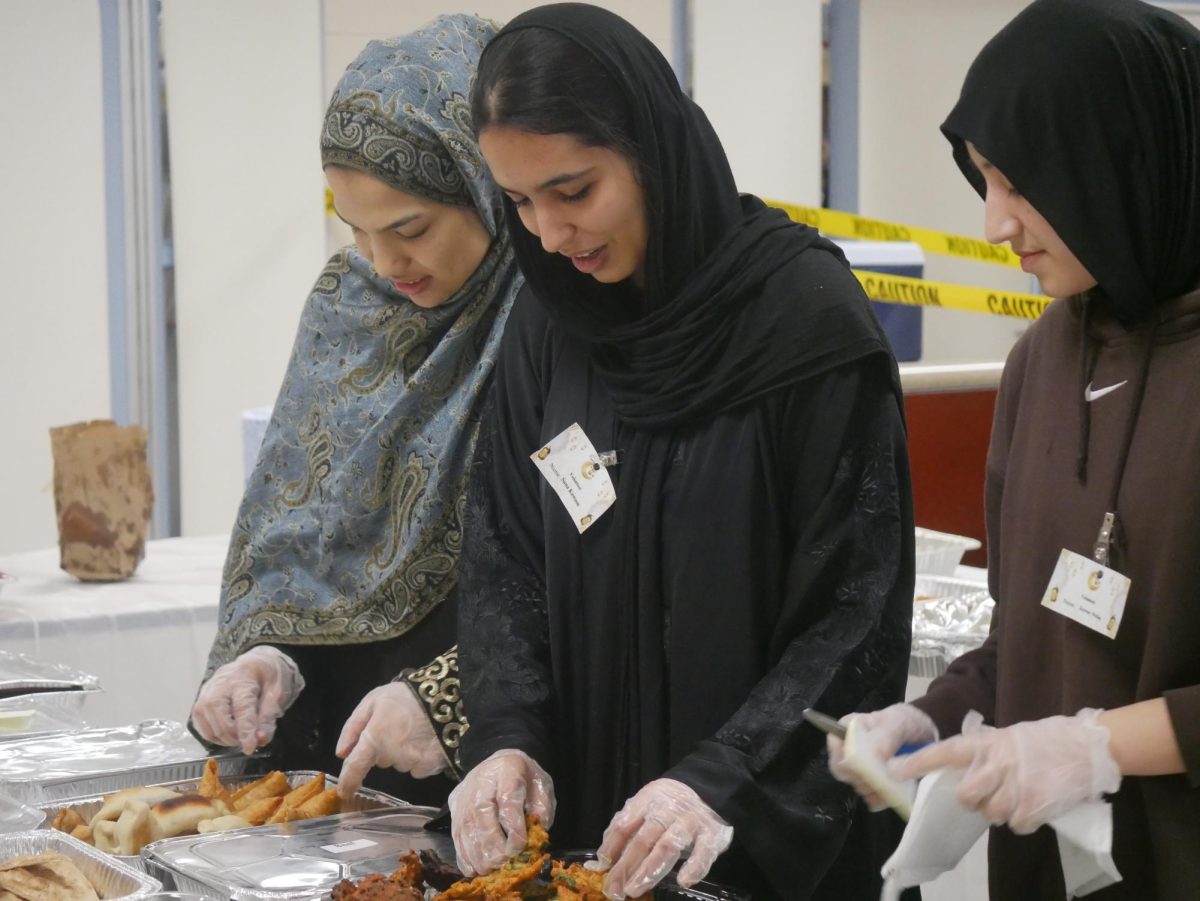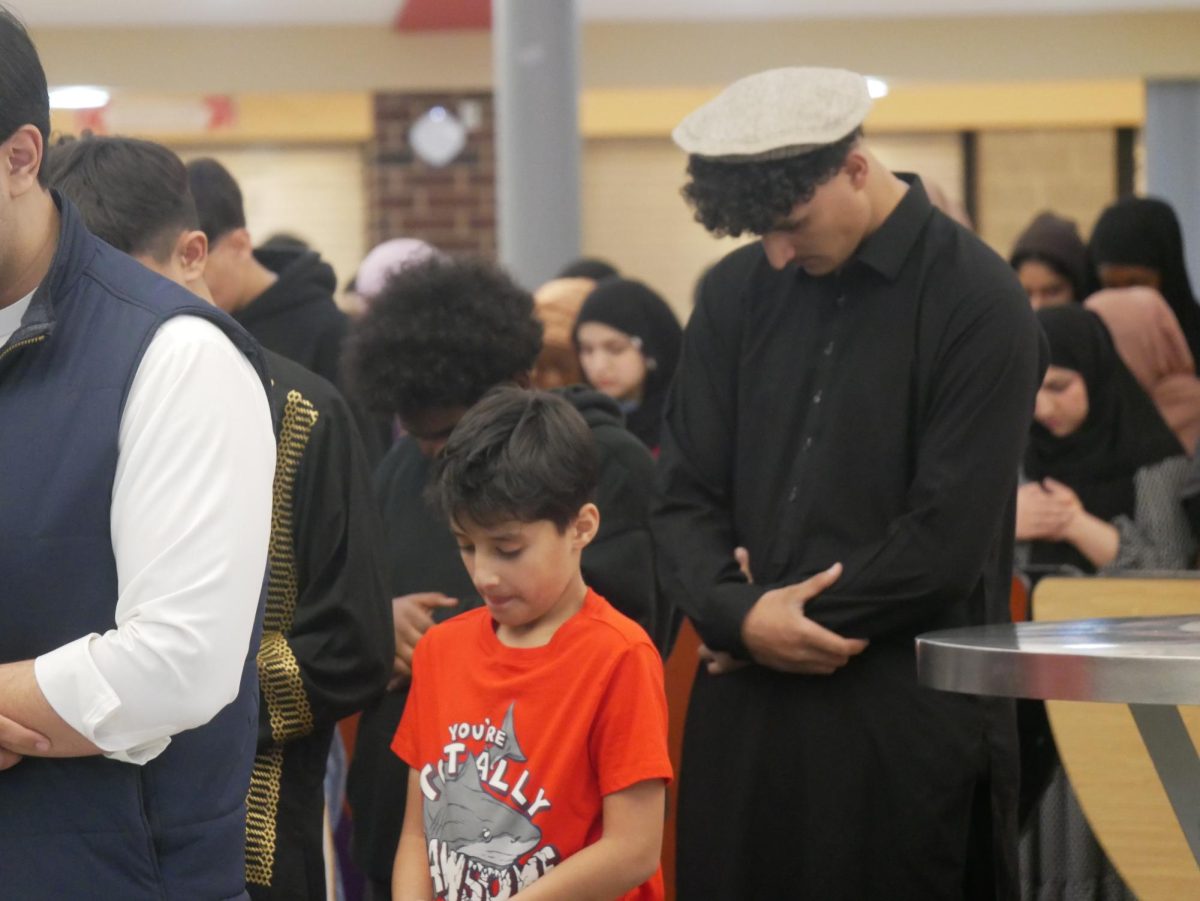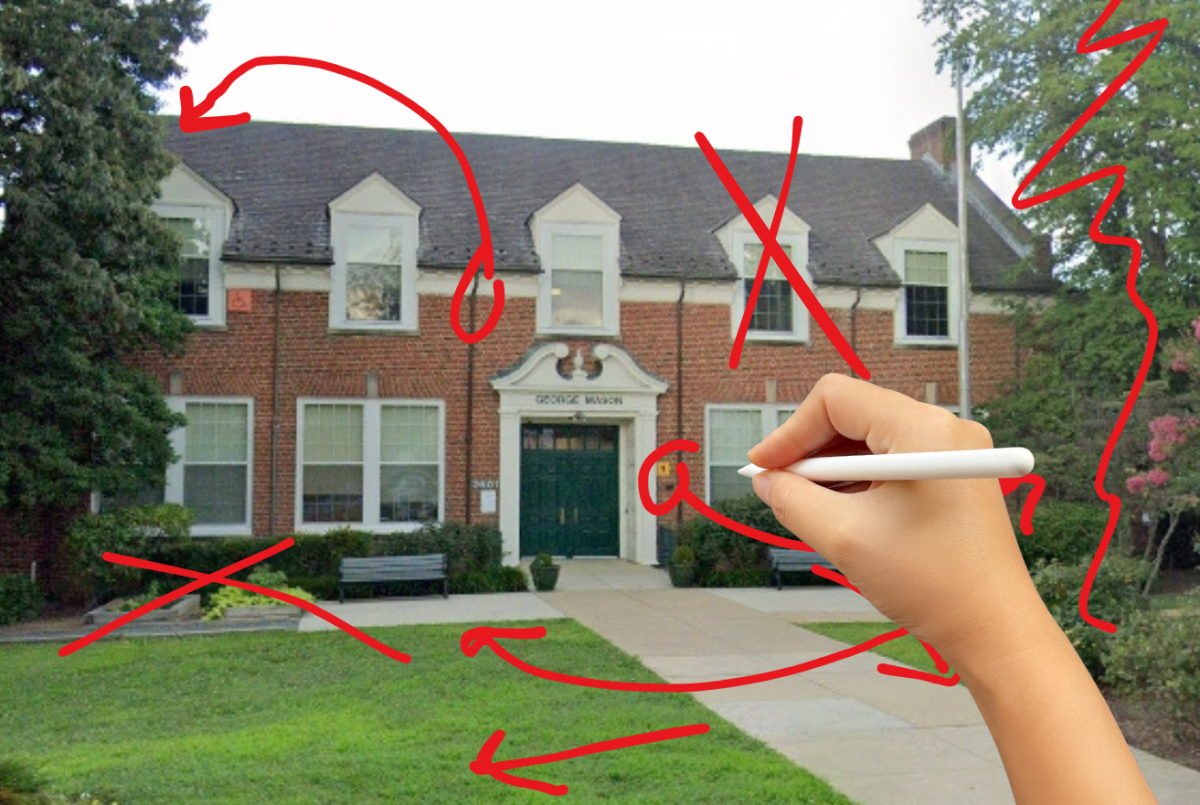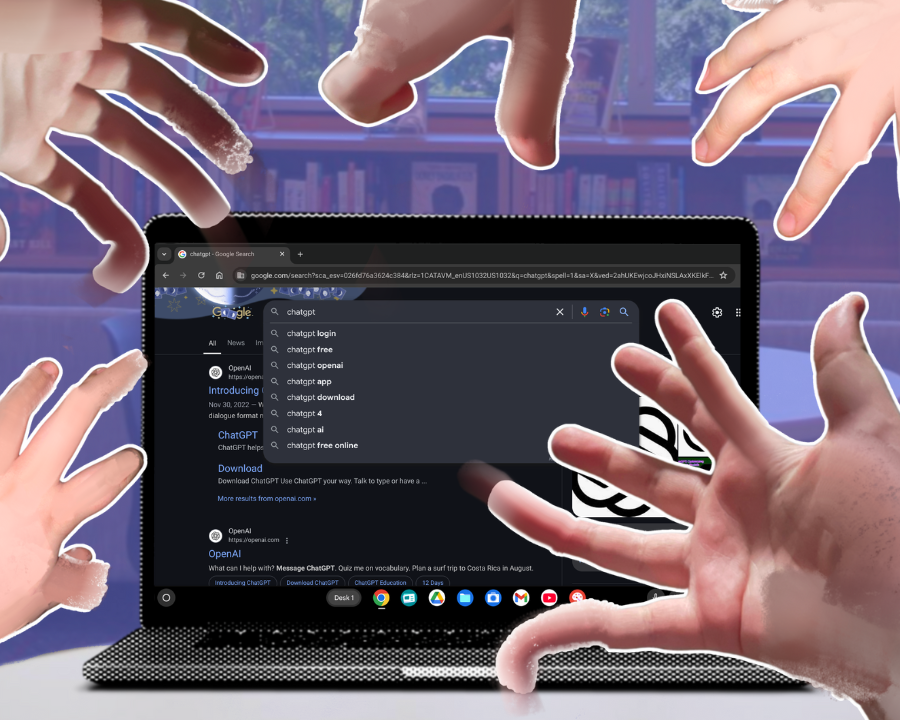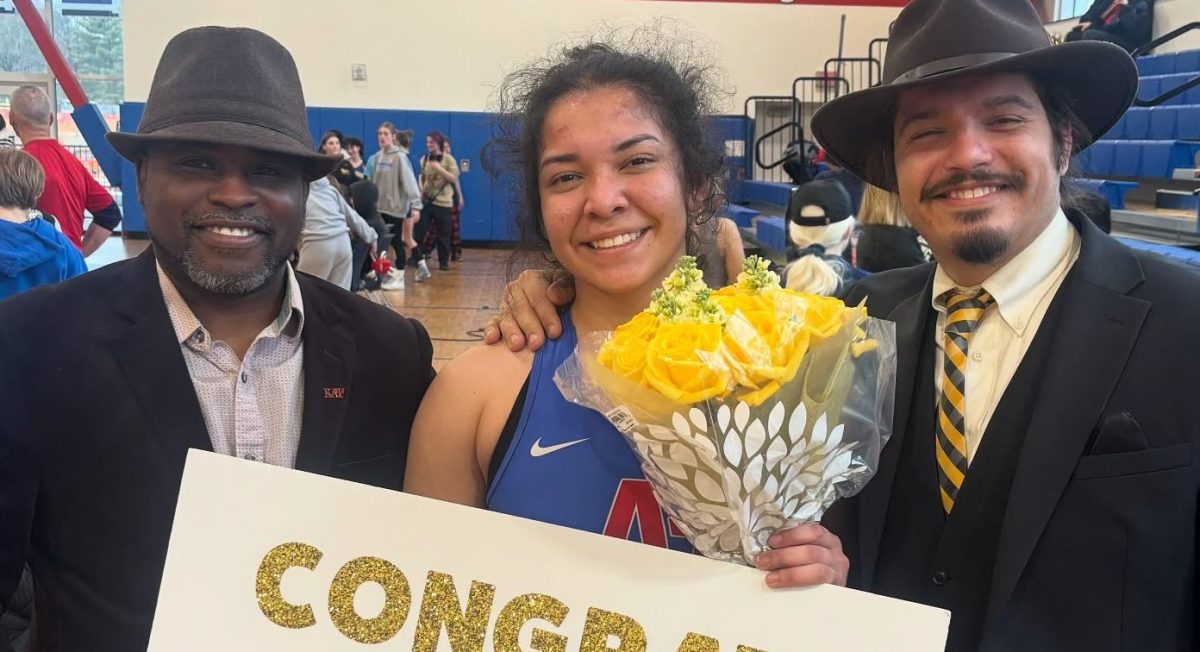On March 14, Alexandria City High School hosted its 11th annual Iftar Night, an event dedicated to breaking the 13-16 hour fast that Muslims undergo during Ramadan. Despite its focus on Ramadan, community members of all cultures were welcome to attend and share a meal.
“When you fast, you become more patient, you become honest. Feeling that is very important,” said Ahmed Khalil, an English teacher in the International Academy. “Fasting is not just being thirsty and hungry. It makes you think about places who don’t have anything. You fast for 14 hours, but there are people who are hungry and then don’t eat food all the time. So it gives a sense of collaboration.”
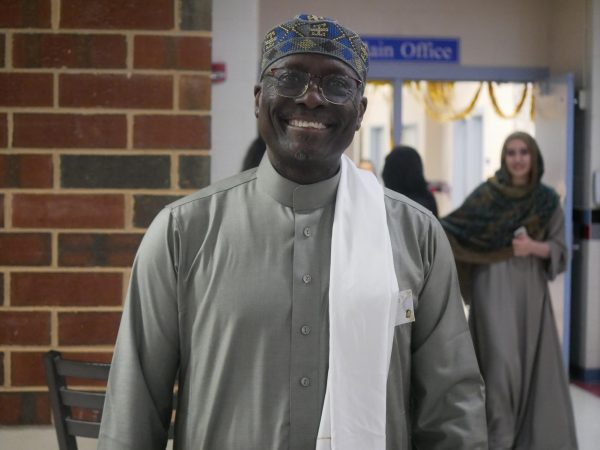
Organization, cleanup, and food preparation was led by student volunteers from the International Academy leadership and Muslim Union clubs.
Student volunteers from the Muslim Student Association laid tables with an array of food from varying cultures, from samosas and naan to boxes of cheese pizza. One student held up the list of foods to reveal the most recent menu addition: Mexican food.
“Even if they are guests or volunteers, they bring food from their own culture,” said senior Sana Kawoon, Vice President of the Muslim Union Club. “That way, everyone tastes food from each culture.”
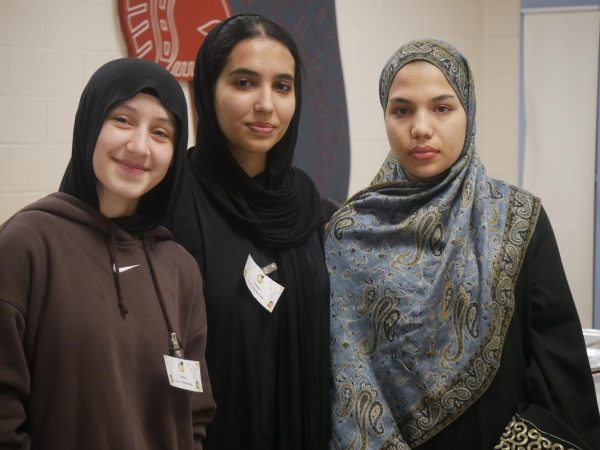
Iftar, as a celebration of community, is open to both Muslim and Non-Muslim attendees.
“This is my first time attending this event,” said History teacher Shannon Campos-Dowdy. “I think it’s really important that we’re supporting our students. It’s one of the reasons I wanted to work here. I always wanted to work in a school that looks like the world.”
Before sundown, Sheikh Younhs spoke to the crowd.
“This month is the month of relieving themselves of evilness of the momentum they have before this very month,” said Younhs.

In the cafeteria, tables were topped with water bottles and small bowls of dates, a traditional fast-breaking food.
“As Muslims, we break our fast with dates,” said freshmen Nour Yassein. “That’s why they’re at every table, It’s something the prophet Mohammad used to do. Though I normally like to break my fast with rice and chicken.”

As the sun finally set at 7:15p.m., students, parents and other community members first broke their fast with a few dates and water before moving to rows of carpets and removing their shoes to perform the Maghrib prayer. Maghrib, one of the five prayers that Muslims perform daily, translates to ‘sunset’ in Arabic as it begins at sunset and lasts until twilight disappears.



